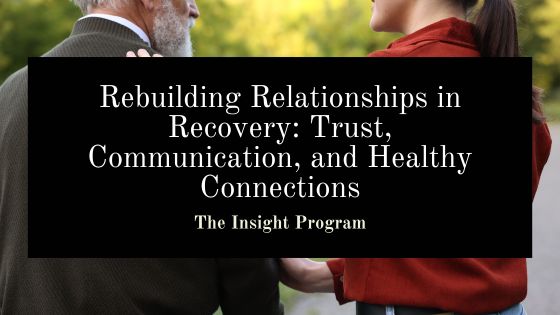Recovery from addiction is a journey that extends beyond personal healing. It also involves repairing the relationships that may have been strained or broken during active addiction. Family members, friends, and colleagues may carry feelings of hurt, disappointment, or mistrust. Rebuilding these connections requires patience, consistent effort, and a commitment to healthy communication.
The Impact of Addiction on Relationships
Addiction often disrupts relationships in profound ways. Broken promises, secrecy, and emotional distance can leave loved ones feeling betrayed or disconnected. Many people in recovery also experience guilt and shame about past behaviors, which can make it difficult to reach out and rebuild trust.
Understanding these dynamics is an important first step. Recovery is not just about staying sober; it is about restoring integrity, accountability, and empathy in interactions with others. Acknowledging past mistakes openly, while focusing on positive changes, lays the foundation for healthier relationships.
Rebuilding Trust
Trust is often the first casualty of addiction, and it cannot be restored overnight. Consistent actions over time are what rebuild confidence in others. Being reliable, following through on commitments, and showing transparency are key.
Honesty is essential. Admitting mistakes, avoiding excuses, and openly discussing challenges demonstrate accountability. It is also important to respect boundaries set by loved ones. Trust grows when individuals in recovery show respect, consistency, and patience, understanding that healing relationships is a gradual process.
Effective Communication
Communication is another cornerstone of healthy relationships. Many people in recovery need to relearn how to express emotions clearly and listen actively. Open dialogue allows both parties to share feelings without judgment, which fosters understanding and empathy.
Techniques such as “I” statements, active listening, and scheduled check-ins can help rebuild communication patterns. For example, saying “I feel anxious when I am not heard” focuses on personal experience rather than blame, creating space for productive conversation.
Setting Healthy Boundaries
Rebuilding relationships also requires establishing boundaries. Healthy boundaries protect recovery progress while creating clarity in relationships. Boundaries might include limits on certain topics, time for self-care, or avoiding environments that pose a risk to sobriety.
Boundaries are not walls; they are a way to maintain balance and mutual respect. Clear limits allow relationships to develop in a supportive and safe manner, benefiting both the individual in recovery and their loved ones.
Fostering Connection and Support
In addition to repairing existing relationships, recovery provides opportunities to build new, supportive connections. Support groups, mentorship programs, and sober social networks offer safe spaces for encouragement and growth. Positive connections reinforce recovery, reduce isolation, and provide accountability.
Conclusion
Rebuilding relationships in recovery requires trust, effective communication, and healthy boundaries. It is a gradual process that demands patience, consistency, and empathy. By acknowledging past mistakes, maintaining honesty, and respecting both personal and others’ boundaries, individuals can restore meaningful connections and strengthen their support network.
Healthy relationships not only provide emotional support but also serve as a foundation for long-term sobriety. Recovery is a journey of personal transformation, and nurturing positive connections is an essential part of creating a fulfilling and balanced life.

